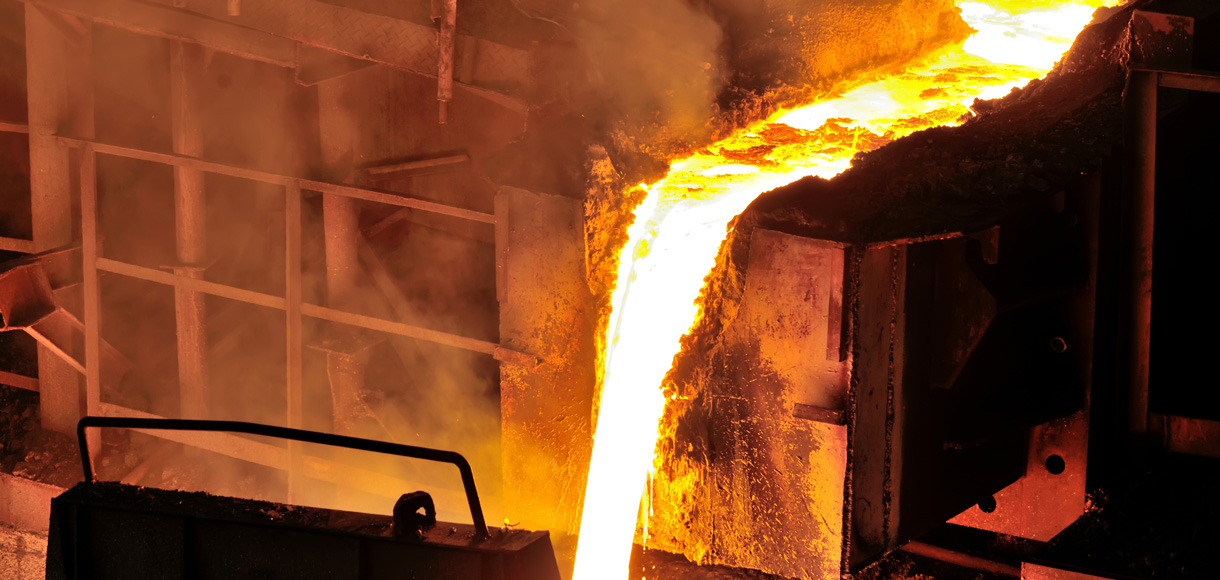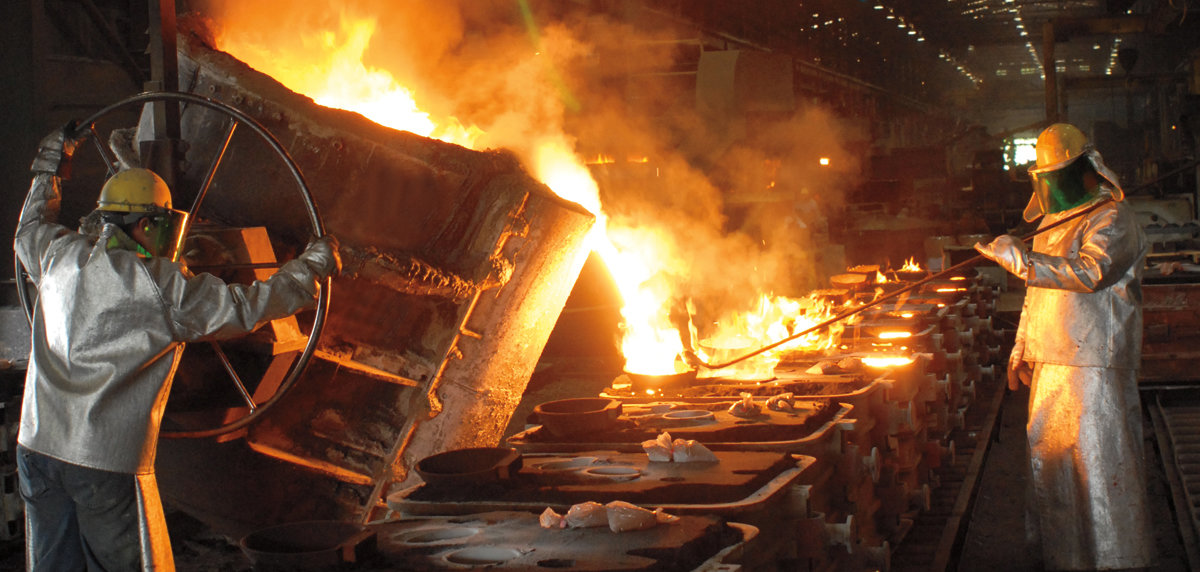Emerging trends of Metal Foundry production and innovation
Exploring the Function of a Metal Foundry in Modern Production Processes
Metal foundries are critical in the landscape of modern production. They give essential elements across various fields, adapting to the needs of sectors such as automotive and aerospace. Advanced techniques such as 3D printing and automated casting have transformed their operations. Additionally, sustainability has come to be a top priority, influencing their methods. As these foundries develop, the effects for producing effectiveness and advancement are substantial, raising inquiries regarding their future trajectory in an ever-changing economic climate.
The Evolution of Metal Casting Methods

With the increase of automation, foundries adopted approaches like die casting and lost foam casting, simplifying the manufacturing procedure and minimizing waste. Each development in metal casting techniques has actually provided to the requirements of numerous industries, from auto to aerospace. As metal casting continues to development, the interaction between technique and technology continues to be essential in meeting modern manufacturing challenges, guaranteeing that foundries adapt and thrive in an ever-changing landscape.
Integration of Advanced Technologies in Foundries
Typical metal casting approaches have actually offered the sector well for centuries, the combination of sophisticated modern technologies in foundries is revolutionizing the manufacturing landscape. Automation and robotics enhance production processes, boosting effectiveness and minimizing the risk of human mistake. Once difficult with standard approaches, technologies such as 3D printing allow for fast prototyping and the creation of intricate geometries that were. In addition, data analytics and the Web of Points (IoT) allow real-time tracking and anticipating upkeep, inevitably bring about reduced downtime and increased productivity. These developments likewise promote customization, allowing producers to respond promptly to market demands. As sustainability ends up being a top priority, the fostering of ecologically friendly technologies, such as electrical melting heaters and progressed sand reclamation systems, further demonstrates the sector's commitment to development. Jointly, these technologies not just improve functional performance but additionally setting foundries at the forefront of contemporary production methods.
The Influence of Material Scientific Research on Foundry Operations
Product scientific research plays an essential role in boosting foundry procedures, affecting both the option of materials and the general casting procedure. Advances in product scientific research offer a much deeper understanding of the residential properties of steels and alloys, making it possible for foundries to select one of the most appropriate materials for specific applications. This understanding boosts the efficiency and longevity of cast products, which is necessary for satisfying industry criteria.
Advancements in material formulations and additives add to improved casting methods, maximizing and decreasing issues production effectiveness. The development of advanced metal compounds and clever materials permits foundries to generate lighter, stronger elements, which are significantly searched for in numerous fields such as auto and aerospace.
Additionally, material scientific research aids in the recycling of metals, making procedures extra economical and efficient. By leveraging the most up to date searchings for in material science, foundries can adjust to evolving market demands, ensuring their competition in a quickly changing manufacturing landscape.
Sustainability Practices in Modern Metal Foundries
With the expanding emphasis on environmental obligation, modern-day metal foundries are increasingly implementing sustainability practices to reduce their environmental impact (Metal Foundry). One crucial technique involves the recycling of scrap metal, which not only lowers waste however also preserves energy and basic materials. Foundries are adopting advanced melting innovations that improve energy effectiveness, consequently decreasing greenhouse gas exhausts. Additionally, making use of eco friendly layers and materials has gained grip, more reducing harmful emissions during manufacturing
Water preservation methods, such as closed-loop air conditioning systems, are being carried out to lessen freshwater use. Several foundries are likewise spending in sustainable energy resources, like solar and wind, to power their procedures, visit this site right here therefore reducing dependence on nonrenewable fuel sources. Personnel training programs concentrated on sustainability practices advertise a culture of environmental awareness within the labor force. These campaigns collectively add to a more sustainable future for metal foundries while satisfying the needs of eco-conscious consumers.
The Future of Foundries in an Altering Economic Landscape
As the international economic climate advances, foundries deal with a myriad of difficulties and chances that will certainly shape their future (Aluminum Casting). The raising need for lightweight materials and progressed alloys requires technology in production strategies and technological integration. Automation and clever manufacturing methods are ending up being necessary for boosting efficiency and lowering operational costs. Furthermore, the surge of sustainability problems urges foundries to take on greener processes and reusing efforts, lining up with worldwide ecological goals
The economic landscape is additionally moving, with supply chain disturbances and fluctuating resources prices providing significant obstacles. Foundries need to adapt by expanding their supply resources and spending in materials science. Cooperation with sectors such as renewable power and electrical vehicles can foster growth. Eventually, the future of foundries will certainly rely on their capacity to take advantage of technical innovations while staying receptive to market dynamics and ecological imperatives, ensuring their significance in modern-day manufacturing.
Regularly Asked Concerns
What Sorts of Metals Are Typically Used in Foundries Today?
Generally utilized metals in foundries today consist of light weight aluminum, iron, copper, zinc, and steel. These materials are preferred for their diverse buildings, making it possible for a vast range of applications in markets such as automotive, aerospace, and construction.
How Does a Foundry Guarantee Quality Assurance in Its Products?

What Precaution Are Executed in a Metal Foundry?
Metal foundries apply security steps consisting of individual safety tools, air flow systems to minimize inhalation of fumes, normal security training for employees, emergency situation response protocols, and extensive equipment upkeep to lessen threats and ensure a secure workplace.
The length of time Does the Metal Casting Process Commonly Take?
The metal casting procedure normally takes several hours to days, depending upon factors such as the complexity of the mold and mildew, the read what he said kind of metal utilized, and cooling times. Each job's requirements substantially affect the duration.
What Industries Mostly Depend on Metal Foundries for Manufacturing?
Automotive, aerospace, building, and equipment sectors largely rely upon metal foundries for production. These markets utilize cast metals for parts, guaranteeing sturdiness and performance important for their particular applications in production and look at here now setting up processes.
Metal foundries are crucial in the landscape of modern-day production. Aluminum Casting. Typical metal casting approaches have offered the industry well for centuries, the assimilation of innovative modern technologies in foundries is revolutionizing the manufacturing landscape. Advances in product scientific research supply a much deeper understanding of the properties of alloys and steels, allowing foundries to choose the most ideal materials for certain applications. With the growing focus on ecological obligation, modern-day metal foundries are significantly implementing sustainability techniques to reduce their eco-friendly footprint. Automotive, machinery, construction, and aerospace industries primarily rely on metal foundries for production